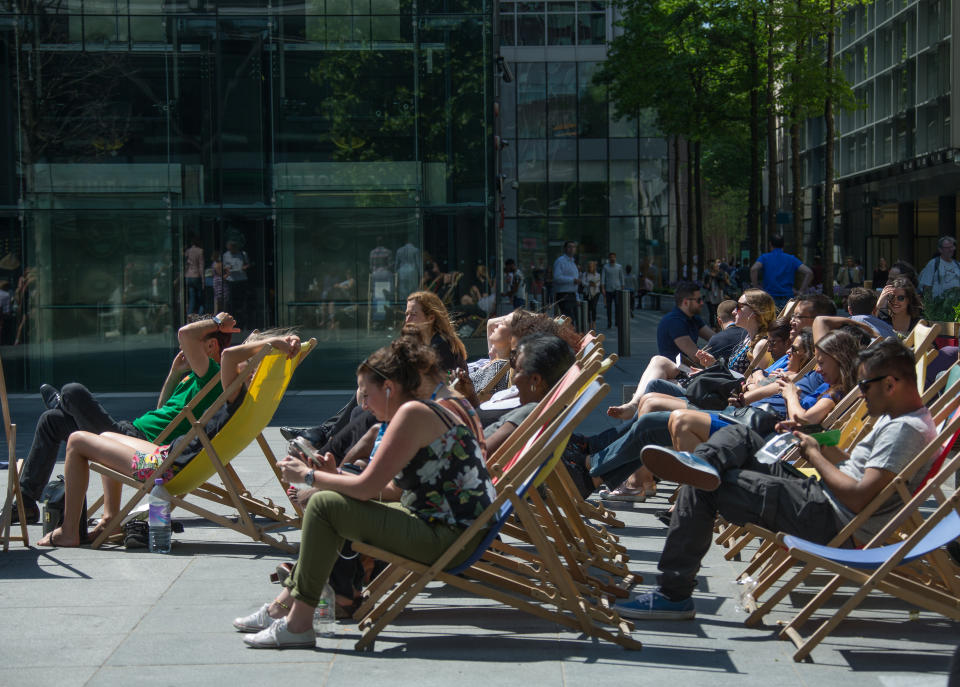Should we all take longer lunch breaks at work?

Earlier this year, MPs recommended schoolchildren should have at least 75 minutes of break time every day. Having a proper break with fresh air and exercise is not only essential for health and wellbeing, but concentration too. So should we all be taking longer breaks?
Gone are the days of enjoying a leisurely lunch before sauntering back to the office, ready for the rest of the afternoon. More often than not, our lunch breaks consist of a quick sandwich eaten above a keyboard, one-handed, while replying to emails.
According to a survey of 1,000 workers by the recruiter Reed, 68% of people don’t take the full amount of time they are allocated at lunch – and two in three admitted not eating lunch at all.
Overall, the average lunch hour has decreased to just 22 minutes since 2012, research by UKactive and Sodexo have found, which contributes to poor productivity and dissatisfaction.
Why are breaks important?
While most people believe that forgoing breaks throughout the day will help them get ahead in their careers, this isn’t necessarily true. We might not be able to take 75 minutes at lunch, but taking regular breaks is one of the best ways to boost productivity and refresh cognitive function.
A 2018 survey by the hygiene products company Tork found 90% of US employees believe taking a lunch break helps them feel refreshed and ready to get back to work.
Taking time off at lunch or at regular intervals can also reduce stress, a problem which can lead to burnout. In his book about workplace eating habits, health journalist Christopher Wanjek found that workers who skip lunch are not only more stressed and less productive, but also end up snacking in the afternoon too.
And while it’s tempting to sit in a cafe for a few minute at lunch, research has shown that getting active on your break can improve concentration and productivity at work. The study, by Bristol University, examined the results of 200 people with desk jobs who used worksite-provided facilities, such as a gym or exercise classes.
Jo Coulson, of the university’s Department of Exercise, Nutrition and Health Sciences, said at the time: “Our statistical results were very important. On exercise days, people’s mood significantly improved after exercising. Mood stayed about the same on days they didn’t, with the exception of people’s sense of calm which deteriorated.”
“Critically, workers performed significantly better on exercise days and across all three areas we measured, known as mental-interpersonal, output and time demands.”
Being sedentary can also impact our health, too. Sitting has been linked to heart disease, diabetes and premature death, but a 2018 study by the University of California Los Angeles suggests it can also affect our memory.
For many of us, a working day involves being glued to a computer screen for hours at a time – which can take its toll on our eyes. Headaches, difficulty focusing and feeling tired are all symptoms of computer eye strain which can be avoided by regularly looking away from your screen and focusing on distant objects. This is because looking far away relaxes the focusing muscle inside the eye, reducing fatigue.
Why we’re not taking breaks
Taking a break is clearly important for our health and wellbeing, as well as our ability to work effectively. So then why aren’t more of us doing it?
In the UK, workers have the right to one uninterrupted 20 minute rest break during their working day, if they work more than six hours a day.
According to a 2017 survey of more than 7,000 workers by TotalJobs, most people are aware they should take a lunch break. Two out of three people said they were encouraged to by their employers, but many said they felt too overwhelmed with work tasks to step away from their desks.
Around 68% of those surveyed justified skipping lunch saying they had too much to do or an unexpected task to handle.
Feeling the strain of competition from colleagues, workers are overworked and overstressed. And it’s not all down to employers, either, as the pressure felt by employees is often internal.
We might feel judged for taking a lunch break, but we shouldn’t. Getting up and away from our work – and our desks – is good for our health and wellbeing, and employers can reap the benefits of a refreshed and relaxed workforce too.

 Yahoo Finance
Yahoo Finance 